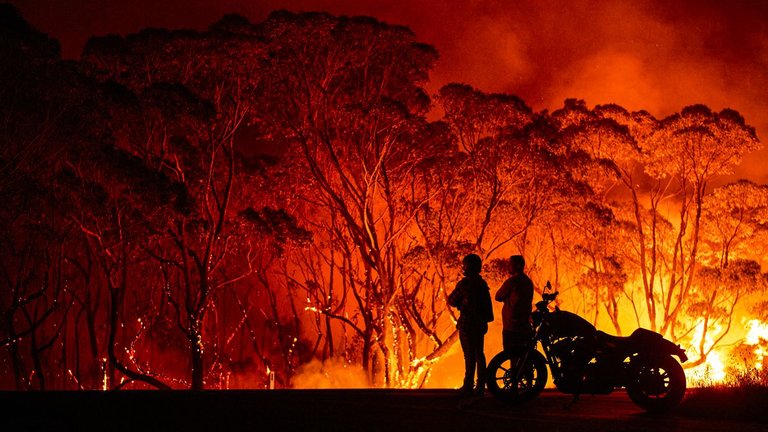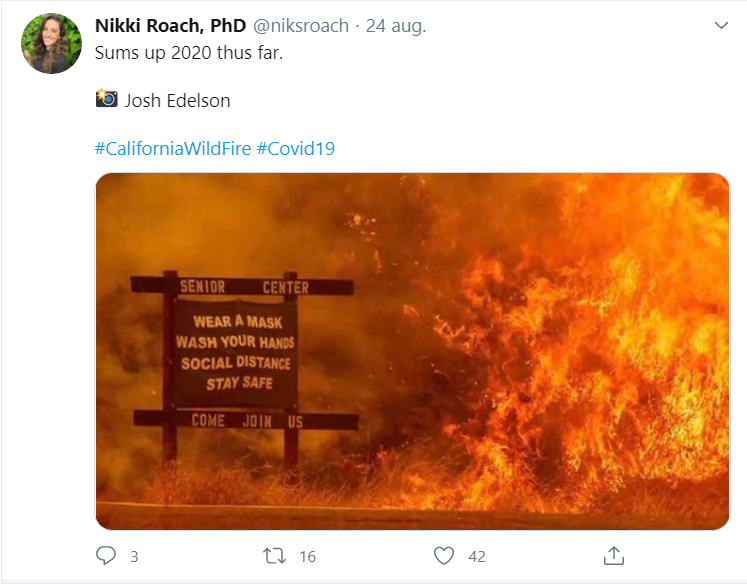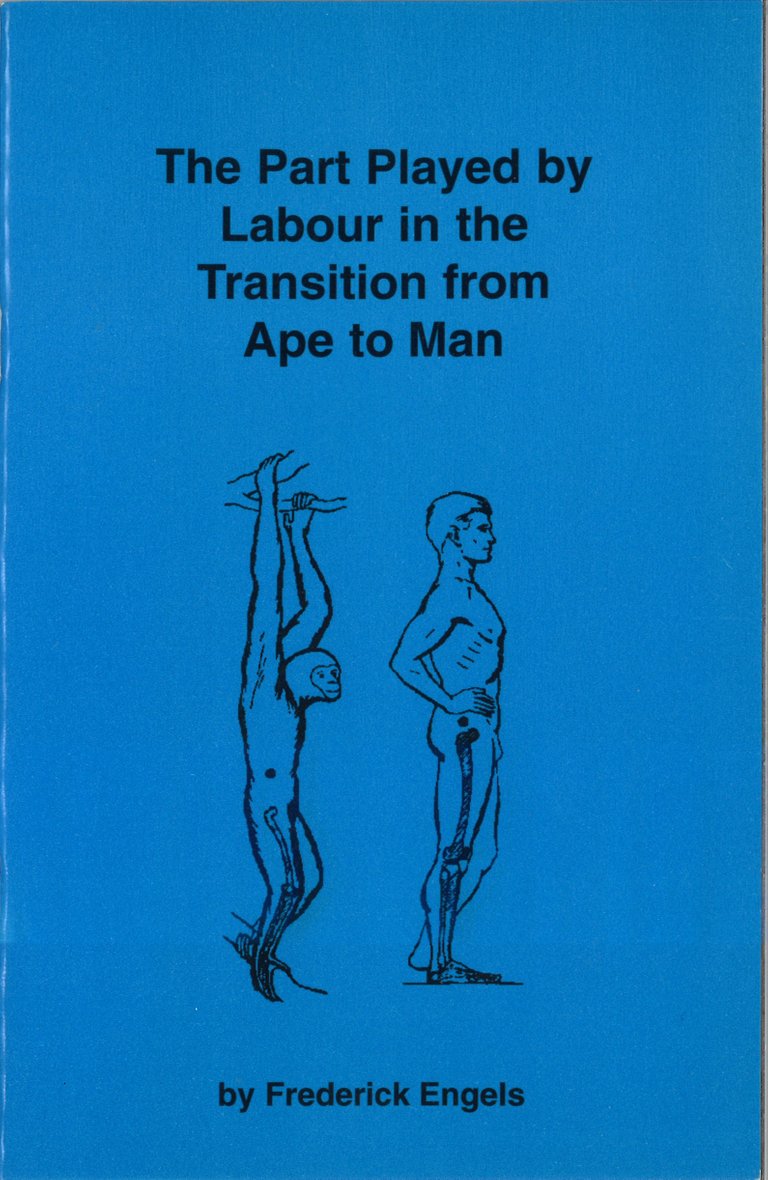
Forest fires. Thousands of forest fires. In California, hundreds of thousands of people had to flee. In late August, in the Arctic, 4 million hectares went up like a Roman candle. This resulted in an ash cloud the size of the European Union. In Australia, 11 million hectares went up in flames. An area three times the size of Belgium of only flames, smoke, and charred kangaroos. These are not exaggerated predictions of doomsayers. This is what global warming of 1 degree Celsius looks like today. With current policy, we are on the way to a warming of 4 degrees Celsius. The situation threatens to become uncontrollable.

In addition, the natural habitat of many wild animals is disappearing. Many animals are dying. Other animals, such as bats, which are often carriers of many viruses, come into contact with humans more often. At the same time, with the decline in biodiversity, a natural barrier to the spread of viruses is disappearing. Forest fires are being lit en masse in Brazil to make way for industrial agriculture. Putting animals with a low genetic diversity together in small spaces creates the ideal environment for the spread of viruses. "You couldn't design a better system to breed deadly diseases," said evolutionary biologist Rob Wallace.

The corona crisis is not an isolated coincidence. It is part of a deep ecological crisis. There is no vaccine for that crisis. "Man lives on nature," Karl Marx writes in The Economic and Philosophical Manuscripts of 1844, "means that nature is his body, with which he must remain in continuous interchange if he is not to die. That man’s physical and spiritual life is linked to nature means simply that nature is linked to itself, for man is a part of nature." Today, that metabolism, that interaction, is seriously disrupted.
"In short," writes Friedrich Engels in The Part Played by Labor in the Transition from Ape to Man, "the animal merely uses its environment, and brings about changes in it simply by its presence; man by his changes makes it serve his ends, masters it. This is the final, essential distinction between man and other animals, and once again it is labour that brings about this distinction."
"However, we should not exaggerate when we talk about human victories over nature. For every victory, nature takes revenge. Every victory, and that's right, initially leads to the results we expected, but then it sometimes has very different unforeseen consequences that all too often cancel out the first result."
The words of Engels are more relevant than ever. The coronavirus today gives us an idea of what impact the unforeseen consequences of our transformation of nature could have. The consequences of climate change that we face threaten to wipe out centuries of progress. Our economic system is at war with the planet. "What the climate needs to avoid collapse is a contraction in humanity's use of resources,“ writes Naomi Klein in her book This Changes Everything. "What our economic model demands to avoid collapse is unfettered expansion. Only one of these sets of rules can be changed, and it's not the laws of nature."
Capitalism is not just an economic model, but a system that organizes our relationship to nature. From a capitalist perspective, nature is a storehouse with raw materials that the richest of the earth can plunder to their heart's content. Competition forces companies to consider only how much something costs and what it can yield. Nature can generate money, but it costs nothing. That makes protecting nature incompatible with the laws of the market on a fundamental level. A CEO who would decide to stop aiming for growth will be fired. Or the shareholders shift their capital to other, more lucrative activities. Market forces leave them no choice: the compulsion to accumulate is ingrained in the DNA of the economy.

Our house is on fire. Literally. Our house is on fire and they give subsidies to those who started the fire. Firefighters who risk their lives work voluntarily in Australia. Nice and cheap for the government. We all need to economize, you know. Meanwhile, the same governments spend more than 400 billion euros annually on fossil fuel subsidies. They call it oxygen for the economy. What oxygen is to capital suffocates the population. Again: literally. Climate struggle is also a class struggle. While the richest 10 percent of Earth's inhabitants are responsible for half of all emissions, it is the world's poorest segments of the population that are hardest hit by droughts, tsunamis, and other natural disasters. Just as the various crises that we face today are linked and reinforce each other, the various resistance movements that arise from them can also reinforce each other.
Today it seems easier to imagine the end of the world than the end of capitalism. But now is not the time to accept what you supposedly cannot change. Now is the time to change what you cannot accept. We need imagination. We need solutions that meet the problems we face. Because it is madness to believe that we are going to solve this by making environmentally damaging activities a bit more expensive. What is needed is an end to unbridled chaos and competition. We need a different economic system, a different political system, a different way of thinking. No, it is not easy to go against the interests of big money. But it is our only way forward. Towards a society where we plan the metabolism between man and nature in a democratic way. A society where our needs are central, not profit.
